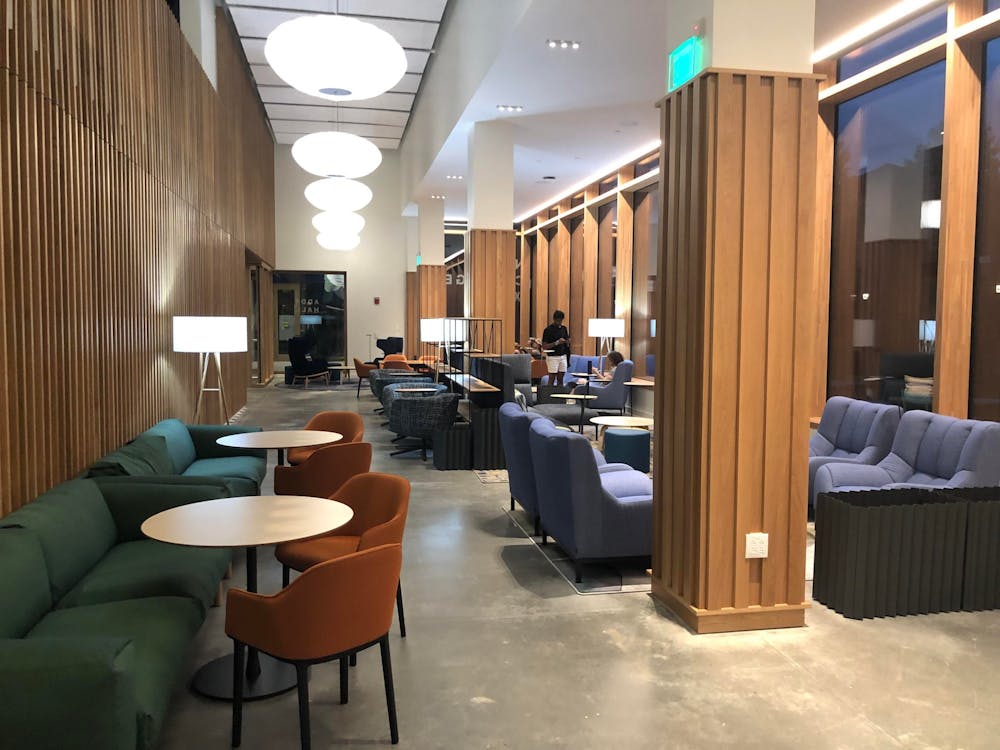As former and current high ranking members of the intelligence community filled McCosh 50 for a conference this weekend, alumni and CIA professionals sifted through newly declassified materials.
The conference was an opportunity for academics and the CIA to analyze the agency's ability to predict events in the Soviet Union from 1947 to 1991.
"On the whole, I wanted to give a portrayal of the picture of the Soviet Union in the period and it's collapse," said keynote speaker and panelist James Schlesinger, former defense secretary and director of Central Intelligence. "And we have had some great panels, and we were able to accomplish that."
The conference examined nearly all aspects of the CIA's analysis of the Cold War, from its origins to its feedback from former Soviet intelligence officers after the the fall of communist Russia.
Lloyd Salvetti, conference co-organizer and director of the CIA Center for the Study of Intelligence, said the conference looked at both the strengths of CIA analysis in the newly declassified documents and weaknesses in predicting Soviet military power.
"We opened these documents to academics and we evaluated where we did well and where we could have done better," Salvetti said. "It really gives us a look at CIA practice and allows for a better understanding of the Cold War."
Many participants, however, stressed that the documents were not the most important part of the conference, but rather the interaction between colleagues and experts.
"We were just at the surface on a lot of subjects right here," said frequent National Security Agency consultant and former Dean of Harvard College Ernest May, during a roundtable discussion Saturday.

Conference co-organizer Frederick Hitz, a Wilson School professor, echoed May's comments, noting that though many misinterpret these conferences as "CIA fraternity meetings," interaction and discussion among the former leaders of the CIA is the most important way for scholars to understand CIA analysis.
"I think the conference went very well," Hitz said. "We were able to bring important information out into the academic world. More importantly, we were able to bring so many talented people together to share their experiences . . . It's the people and the information not in the documents we need to save and record for the academic community."
Conference participants were given a 300-page book of the highlights of the declassified material and two compact discs that contained all 19,000 newly declassified pages. Hitz said he would have preferred to have released the declassified information prior to the conference to allow for greater detail in discussion.
"The point is, if [the participants] had had a chance to read the documents, we could have had better discussions," Hitz said. "But we achieved our main goal and that is to get these documents out for scholars to read. People will leave this conference and will crack the book and the CDs."

The conference was divided into seven panel discussions in McCosh 50 and several lectures during lunch and dinner at the Frist Campus Center and Prospect House. Panelists were given access to the declassified material early on to aid them in preparing their discussion. One panelist prepared a written analysis of the CIA in a particular field, while the rest of the panel commented and debated the report.
Douglas Garthoff, who prepared the "Soviet Politics and Foreign Policy" report for a Friday afternoon panel, said he thought the conference was a wonderful academic experience.
"It shows that the CIA was keenly aware of the important issues," Garthoff said. "They weren't always right, but looking at the documents one sees that CIA analysis was very strong during the Cold War."
According to Hitz, this weekend's conference was 18 months in the making. It was postponed for 12 months by the CIA because of declassification concerns. Hitz said he is glad the conference was well attended and that such an extensive amount of information could be declassified.







